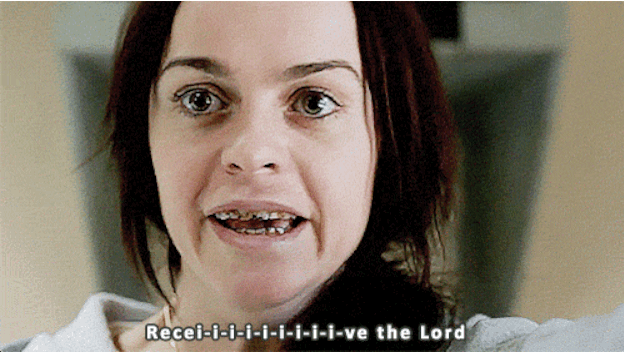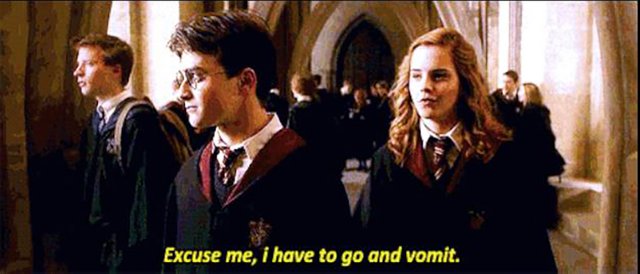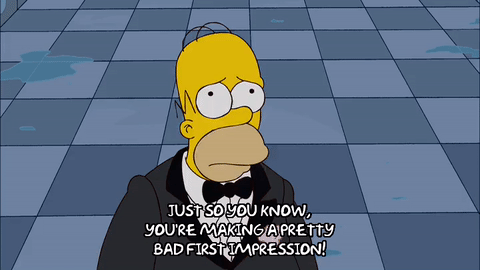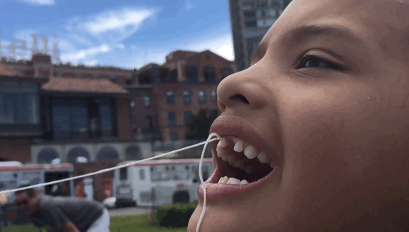Researchers Explain What Biting Your Nails Says About Your Personality
Are you somebody who chews on the fingernails for the entire day? Assuming this is the case, you positively have a considerable measure of fellows. It’s assessed that 33% of grown-ups keeps on gnawing their fingernails.Did you ever ponder the reason behind gnawing your nails? The majority see the problem as an indication of stress and uneasiness.At first glance, this perspective bodes well. However, it may not recount the entire story. As indicated by a review stated in “Journal of Behavior Therapy and Experimental Psychiatry,” nail-gnawing might be an indication of perfectionism.Psychology today describes the perfectionism in this way, “An endless report card on accomplishments or looks. It’s a fast track to unhappiness, and…is often accompanied by depression.”We will talk about the research and implications of this research for the nail biters.
1. This is what it means if you bite your nails

They define the “Body-focused repetitive behaviors” (BFRBs) as “repetitive, injurious, and non-functional habits that cause significant distress or impairment, including hair-pulling, skin-picking, and nail-biting.”The researchers tried to contrast the tendency to take part in BFRB by utilizing two models: The Emotional Regulation model (ER) and the frustrated action model (FA).The ER model infers that negative feelings and mitigation of obnoxious impact activates BFRBs. The FA model suggests that anxiety, weariness, disappointment, and frustration are the factors responsible for activation of BFRBs.Scientists stated that people who participate in BFRBs are more inclined to activities under the FA display, as “they demonstrate maladaptive planning styles characterized by high standards and unwillingness to relax,” two natural qualities in the perfectionists.
2. Conclusion

After watching a ‘BFRB group’ and another control group, comprising of 24 and 23 members, individually, analysts came on a result about the accuracy of their theory. The review’s outcomes incorporate three perceptions:1. The group of BFRB detailed an extensively higher desire to take part in BFRBs than control group under different circumstances.2. BFRB members revealed a significantly higher inclination to participate in the fatigue/disappointment and stress condition than in an unwinding state.3. Most apparently, the group of BFRB “presented significantly higher scores on maladaptive planning style, and maladaptive planning style was significantly correlated with difficulties in ER.”
3. Research and Perfectionism

The principal author of this research, the Dr. Kieron O’Connor said, “We believe that individuals with these repetitive behaviors may be perfectionists, meaning that they are unable to relax and to perform tasks at an average pace. They are therefore prone to frustration, impatience, and dissatisfaction when they do not reach their goals.”In simpler words, the habit of nail biting has a less relationship with the stress and anxiety than the frustration. This observation with the bond that study has revealed between nail biting and being perfectionist shows us more evidence about the link of nail biting and perfectionism.
4. The Nail biting and the Health

As the review clarifies, nail-gnawing is a BFRB – a grouping reaffirmed by far most of the medical group. However, every BFRD-related conduct is dangerous to human wellbeing, and the nail biting is no particular case.As stated by WebMD, “Nail biting has both physical and emotional consequences.” Among the physical problems associated with nail-biting:* The soreness and the redness of fingernail skin and nails* Bleeding and then chances of infection in skin area encompassing nails* Increased weakness to microscopic organisms, contamination, and diseases (by finger-to-mouth way)* The weakening of teeth finish* The maladjusted teeth* It gives a poor impressionBy psychological evidence, WebMD links fingernail-gnawing with nervousness and stress. However, it could show a more genuine mental issue, for example, the Obsessive-Compulsive Disorder we know as OCD.Relatedly, some believe that perfectionism is the cause of OCD.Nail biting is a typical however incredibly annoying habit – this pattern is sustained by counterproductive feelings and (potential) mental issues.In spite of the fact that being “diagnosed” as the perfectionist might justifiably stir sentiments of pride in uninitiated. However, it is a significant degree unfortunate mental state.Some researchers have also demonstrated the link between perfectionism and psychological problems. These problems include substance abuse, personality disorders, self-harm, eating disorders, dysmorphic disorder, social anxiety, clinical depression, and social phobia.The perfectionist can also develop the stress related disorders, which could lead them to some serious heart problems.
Six Harms of Nail biting
1. Every type of germ is crawling under the fingernails

Yes, this is true, there are a lot of bacteria present under your fingernails. These bacteria could lead to a severe skin infection and many other problems. One of the most dangerous germs, we know as Staphylococcus aureus exists under the nails.
2. Chewing the nails will only increase the problem

The bacteria that causes diarrhea and the bacteria that causes vomiting issues are present under your nails. When you chew your nails, you are just ingesting them in. They can cause many problems so you would now like to keep your teeth away from the nails.
3. Nail biting leads to dental damage

Netflix / orangeitnblack.tumblr.com
You never know what this little habit of nail biting can inflict upon you. Nail biting has already resulted in tooth loss, displaced jaws, and tooth fractures. Just try not to get yourself in any of these problems.
4. It transforms the fingertips in the puss bath

Warner Bros. Pictures / Via mavieserasibelle.tumblr.com
Staphylococcus aureus, harmful bacteria, enters into the open and small sores due to nail biting. It results in the making of puss just around your nail. It is just similar to the finger herpes that sore virus causes.
5. The Poor Impression

A significant downfall of nail biting is that you start doing it unintentionally while you are under stress or a difficult situation. It gives an impression that you are under stress or some pressure. It does not let you look confident. In this way, it harms you in many aspects of life.
6. It Weakens the enamel

Nail biting decreases the strength of enamel and weakens it. Enamel is the finish around your teeth that gives support to the teeth. It can also lead to many issues related to the teeth. We all know that tooth problem are so much painful so it is just better to stop nail biting.
How to Stop Nail Biting
You can try covering your nails with some sticker. You can also use a tape, or you can just wear gloves. You can also replace the habit of nail biting with some healthy habits like playing using a fidget spinner or playing with the stress ball. These things will keep your hands away from the mouth.We would love to hear your views on this. If you like it, share it with your friends and family. Please let us know your opinion in the comments section below.